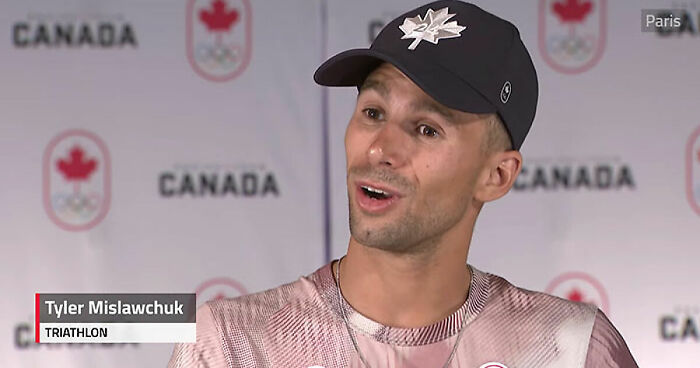
Olympic Triathlete Tyler Mislawchuk Attributes Vomiting To Achilles Recovery, Not Seine Pollution
The 2024 Paris Olympics Triathlon has been at the center of a controversy surrounding the state of River Seine. Participants and organizations alike have levied criticism against the event arguing that the water’s sanitary conditions are “unacceptable.”
Canadian star Tyler Mislawchuk was among the first to dive in as he took part of the men’s edition of the triathlon on July 31, 2024, ending in 9th place and shocking viewers by vomiting profusely upon reaching the finish line.
- Tyler Mislawchuk vomited ten times during the triathlon, fueling speculation about the river's water quality.
- Mislawchuk clarified his vomiting was due to pushing himself, not the Seine's water quality.
- Despite efforts to clean the Seine, controversy and concerns about water quality persist.
“Did I vomit once? No, I threw up 10 times. The last four kilometers were deadly and I started feeling sick and very hot,” he said in an interview after the race had ended.
Speculation followed soon after, with many pointing fingers at the status of the river as the culprit. But Mislawshuck himself put an end to the speculation in an interview with the Canadian Press on August 1, 2024.
“I was coming back from an Achilles tear,” he explained, adding that he wanted to push himself as far as he could because he felt it was his last chance. “Sometimes athletes never come back from [a tear] and at times it felt like maybe I’d never come back.”
Olympic triathlete who vomited on live TV debunked the notion that his incident was caused by the quality of River Seine’s waters
Image credits: The Canadian Press
When asked about how he felt about finishing the race at ninth place he stated,
“I don’t think it had so much to do with being ninth. I was emotional, you know. As an athlete you have doubts all the time you have a lot of ups and downs but these last three years have been really tough on me [because of my Achilles heel],” he said.
Mislawchuk made no mention of the water conditions or of the controversy surrounding the issue. Instead attributing his vomiting to pushing himself beyond his limits.
“I pushed myself and throughout the race so many times,” he explained. “[So] when I started hurting, I just said [to myself] ‘twenty more seconds, just stay on for twenty more seconds’ and I repeated that too many times to count.”
The Canadian star affirms to feel proud of his performance despite the pain he was in, adding that just getting to participate in the competition was a victory for him.
“To be standing on the start line, healthy and fit, was a win in itself,” he stated. “So I said to myself: ‘go out there and play and just enjoy yourself.’ And that’s what I did.”
Fellow triathletes, such as Jolien Vermeylen, have instead opted to blame the Olympics organization for the polluted state of the waters
Image credits: Olympic Games
“We raced here last year in the test event and I had no issues. Obviously, I’m not a doctor, I’m not a water specialist,” the athlete added.
Despite his dismissal of the complaints about the water quality of the Seine, other athletes shared their own grievances after taking part in the competition.
For example, Jolien Vermeylen, a fellow triathlete for the women’s edition of the race, slammed the organizers of the event on July 31, 2024, after claiming to have “felt and saw things that we shouldn’t think about too much,” under the water while participating in the competition.
“The Seine has been dirty for a hundred years, so they can’t say that the safety of the athletes is a priority. That’s bulls***!” she argued.
The Seine River has been the subject of a comprehensive sanitization project by the Parisian government, which seeks to make its waters “swimmable” by 2025.
The project, costing upwards of $1.5 billion, involves the rebuilding of critical sewer infrastructure, as well as the construction of several dams to contain any pollutants from getting into the river.
Despite these efforts, heavy rainfall during the weekend forced the organizers of the event to postpone the race, originally set to take place on July 30, 2024.
Even after the Canadian athlete disregarded any pollution as a cause, conversation surrounding the status of the river continues
Image credits: Ezra Shaw/Getty
“Those athletes who participated could have contracted bacterial or parasitic infections that they will never completely recover from. If this happens there will be a deluge of well deserved lawsuits,” said one commenter.
“The Olympic Athletes who are forced to compete in the polluted Seine River, need to file a class action lawsuit against the Corporate Organization of the Olympics and the Government of France,” argued one fan.
“I think every Olympic official should drink A glass of water from the river,” joked one viewer.
“Now they just have to hope that there won’t be too many sick athletes,” expressed one fan, concerned.

 Dark Mode
Dark Mode 

 No fees, cancel anytime
No fees, cancel anytime 






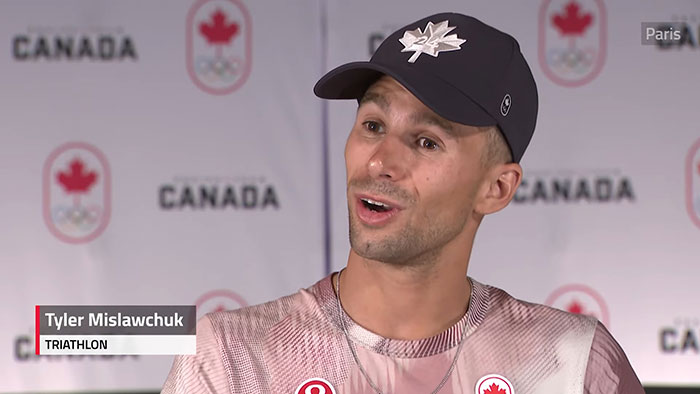
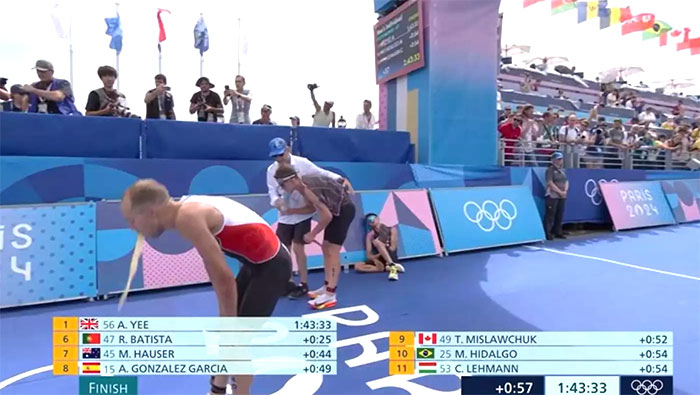
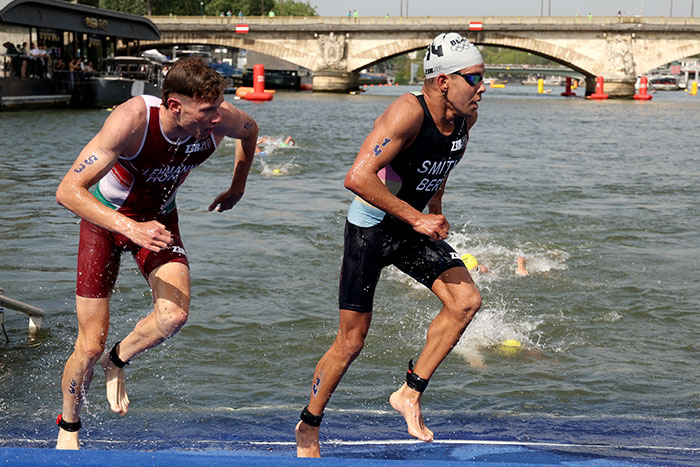














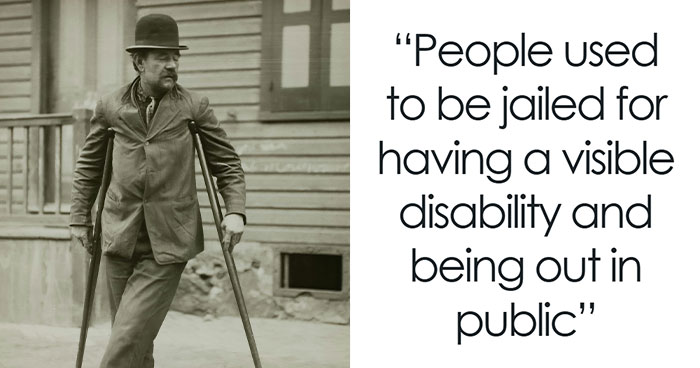



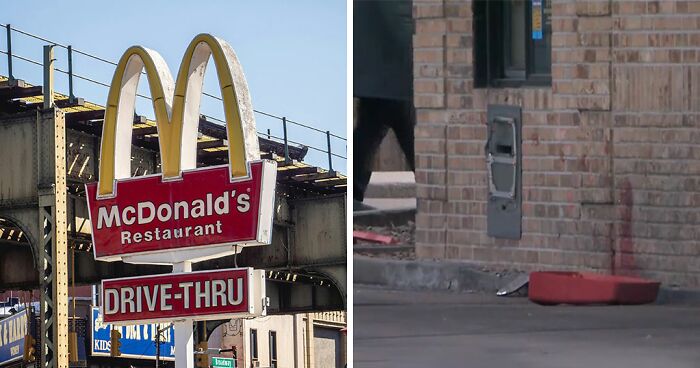































26
2